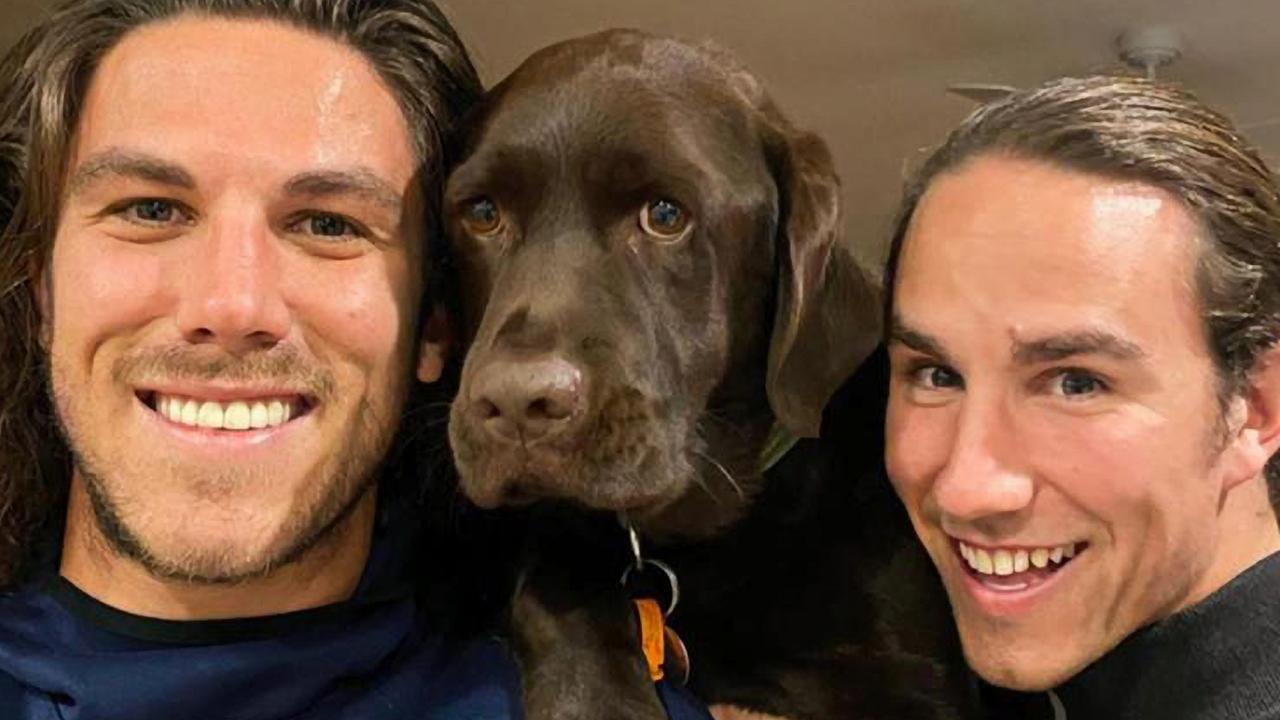Alleged hitman dubbed ‘The Shepherd’ denies killing cop
News Corp Australia tracked down ‘The Shepherd’ – the man a secret police report claims is behind the murder of former top cop Colin Winchester. This is what he told Charles Miranda.
Crime in Focus
Don't miss out on the headlines from Crime in Focus. Followed categories will be added to My News.
For a supposedly dangerous, globetrotting mafia assassin, the man in sandals and socks working his neat suburban garden is not what you’d expect.
“Do I look like someone like this (assassin), I even have holes here, look,” the diminutive Calabrian with the heavy accent said as he flexed his feet to expose his toes through threadbare multi-coloured socks.
“No this is not me … they (the police) are knocking on the wrong wall, like this (knocking on a brick wall). I am not this person they think.”
The man has been living a quiet suburban life with his wife and family on the northeast outskirts of a major Australian city since he migrated to the country in 1989.
But according to police he was anything but urban when, as a 21-year-old, he was allegedly dispatched by the ’Ndrangheta organised crime syndicate from Rome to Australia on October 19, 1988, to carry out the assassination of one of the highest-ranking police officers in Australia.
Then, police say, the mafia hitman called himself “The Shepherd” as he and another man travelled to Australia to carry out the execution of AFP assistant commissioner Colin Winchester and protect the multimillion-dollar illicit drug distribution network along the eastern seaboard from Queensland, through NSW via Griffith to Victoria, and co-ordinated out of Adelaide.

The two hitmen were known to each other, were both from the village of Reggio in Calabria in southern Italy, and were well-connected with the local criminal milieu when sent to “redeem family honour” after an unnamed “chief of police” allegedly refused bribe money to pay corrupt officers for continued support of a national drug network.
When confronted this week, the man laughed at being called The Shepherd, knowing anything about the mafia or being connected to the underworld – despite being convicted and sentenced to a number of years in prison in the 1990s as part of a drug syndicate run by the Calabrian mafia.
“This (assassin claim) was all investigated a long time ago and had nothing to do with me,” the man told News Corp Australia.
“Police look at all these things. All these names mean nothing, we just come from the same area, everyone have these names,” he said.
“I can’t believe they (police) are talking about this again … it doesn’t matter what they think with these things. It breaks my heart though they think this.”
When asked if he had ever murdered anyone, he shook his head. “No, I am not this,” he said.
“I wouldn’t have stayed here if this was true, I would have left, not stayed here but I wanted to stay here to start a new life.”
He confirmed he was interviewed by police 30 years ago but they were satisfied the information they had was wrong and he was just another Italian migrant wanting to start a life in Australia.
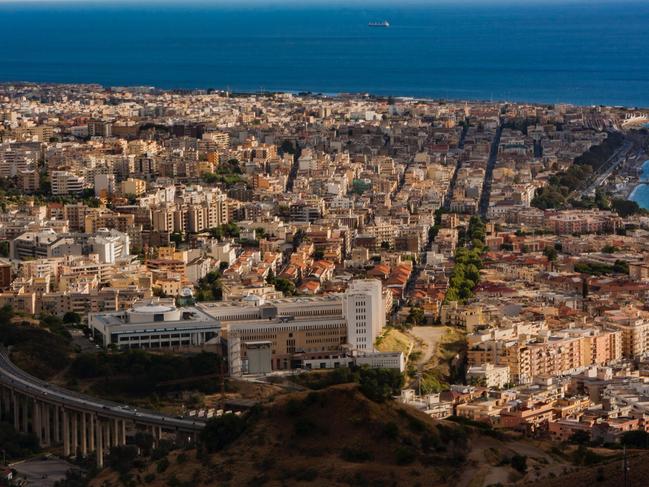
Mr Winchester was found shot dead with two bullets to the back of the head, slumped in his car in the driveway of his Canberra home on January 10, 1989.
According to a highly unusual memo sent two weeks later by the Italian Carabinieri to the AFP, The Shepherd’s association with the ’Ndrangheta was “renowned” and he was a capable weapons handler and “considered a dangerous person due to his family background”.
A second memo wired on June 12 that year went further and detailed how The Shepherd had been ordered not only to kill Winchester but to then marry an Australian daughter of a prominent Calabrian leader so he could remain in the country.
The information had been taken from phone taps in Italy by an Italian anti-mafia police unit listening in to known Calabrian organised crime figures discussing plans to expand in Australia and what needed to be done and what was standing in their way.
The Shepherd already had strong ties in Australia, family and or criminal associates, namely the Barbaro family in Melbourne and others in NSW including Griffith and Queanbeyan on the NSW-Canberra border.
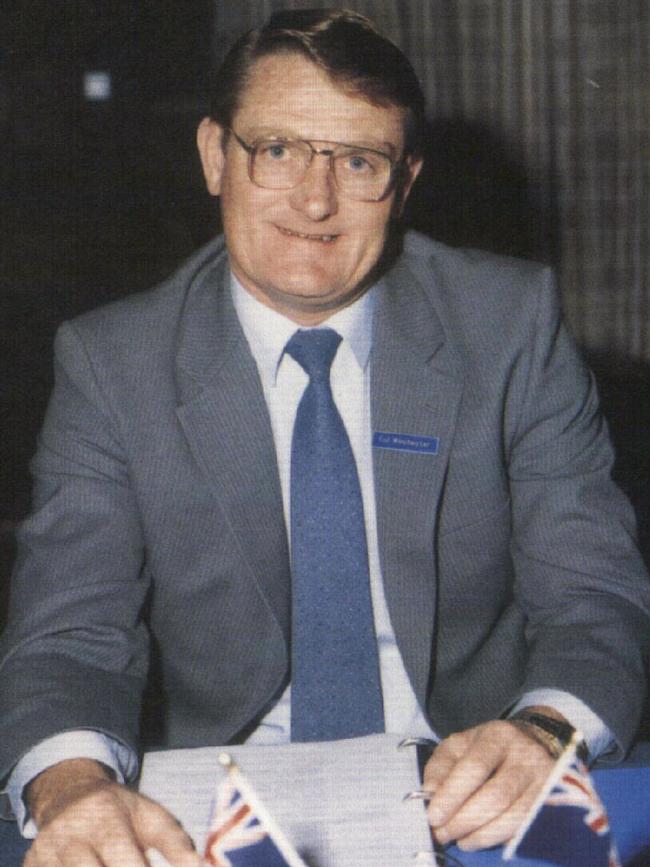
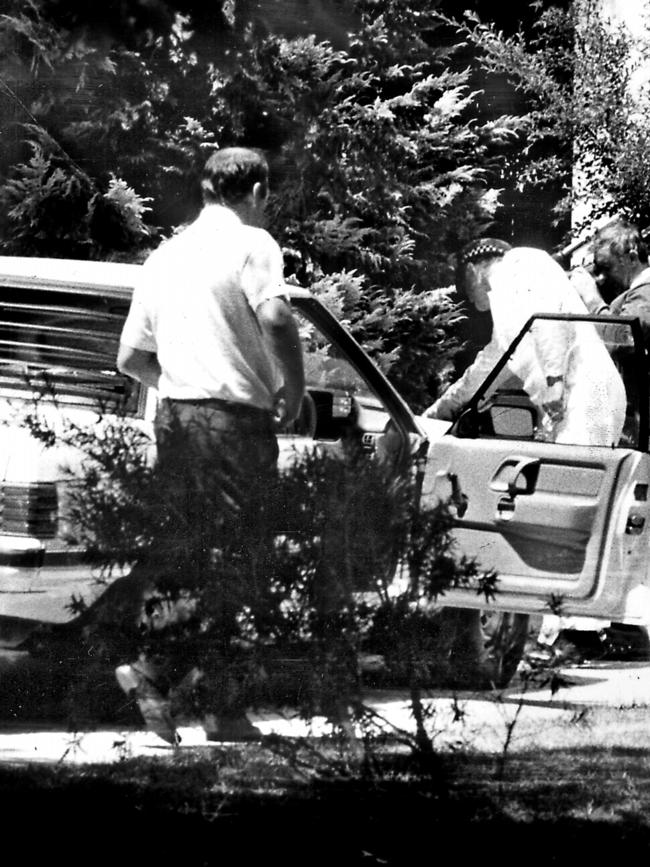
After the Winchester slaying, according to police files now dusted off by the AFP as part of a broader inquiry into Italian organised crime in Australia, The Shepherd’s younger colleague was to immediately fly back to Rome after visiting mafia criminal relatives in Melbourne while the other man was to remain to be married to the daughter of an Australian mafia capo, or captain.
The wedding was held in that year, around the time the mortgage on their home was discharged, paid in full, and $20,000 worth of new furniture was bought to furnish it.
On the basis of the Carabinieri tip-off, the commonwealth police put that house and then the garage of another home on the outskirts of the same city under surveillance, extending on a long pole a microphone from an adjoining garden shed into a garage where 20 suspected ’Ndrangheta members were meeting
In September 1989, the alleged local ’Ndrangheta boss, by now The Shepherd’s father-in-law who lived a two-minute walk away, called the gathering to discuss “business” in a nondescript garage attached to an associate’s home.
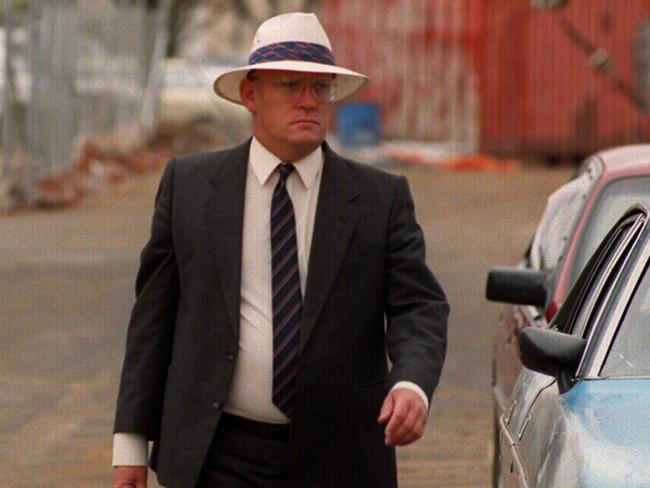
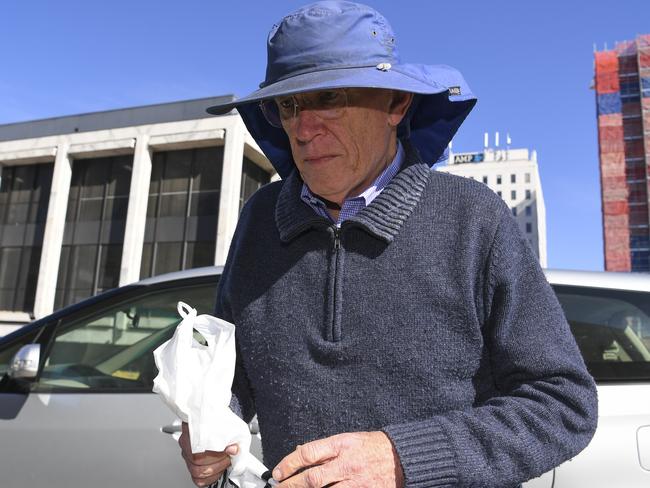
During the meeting there was discussion of a Ruger rifle costing $350 (coincidently the same weapon believed to have been used to execute Winchester), marijuana production in NSW at Bungendore, firearms availability, murder, death and what criminal intelligence was available.
For police listening in, the talk showed the men knew of a group dubbed the Bungendore 11, after 11 Italian men arrested overcrops grown about the NSW village close to the Canberra border that an informer had tipped Winchester about and the police officer agreed to allow to flourish in a bid to gather further intelligence on the group.
Police would later launch a raid in a bid to find weapons that had been discussed; they found none but hidden in the garage they found a notebook that detailed ’Ndrangheta initiation and rules.
The Shepherd, who had attended the meeting, was pulled in and interviewed by police about Winchester. He agreed he had earlier been to Canberra but denied any knowledge of the murder and denied he was an assassin with a contract to kill.
His wife, also spoken to by News Corp, laughed off suggestions her father was a mafia capo boss or her marriage was at all arranged decades ago.
She said her future husband also absolutely did not come to Australia with a suitcase of money, for bribes or otherwise.
“This is just ridiculous that people say this,” she said. “It is all wrong.”
Her husband said his initial arrival in Australia was not to carry bags of cash for mafia operations but was to visit a relative.
“I came here to visit my grandmother who was dying,” he said. “I have uncles here, aunties too, I wanted to come here before she died, that’s it.
“All these other things … well, it doesn’t matter, it is all wrong.”
It is understood The Shepherd is also related by family to a suspect from the AFP’s high-profile ANOM investigation in which criminals shared what they thought was a secure communications network by instead was a covert police operation.
In a statement on Sunday night, the AFP declared there was no open investigation into the Winchester matter and “no recent” review.
“Our thoughts are always with the Winchester family,” a spokesperson said.
Despite the AFP’s own intelligence and reports on the ‘ndrangheta referencing the Italian Mafia and the Winchester case including reports from Italian counterparts, the spokesperson said there “is no evidence to suggest Italian organised crime was responsible for the death of one of our own”.
More Coverage
Originally published as Alleged hitman dubbed ‘The Shepherd’ denies killing cop




